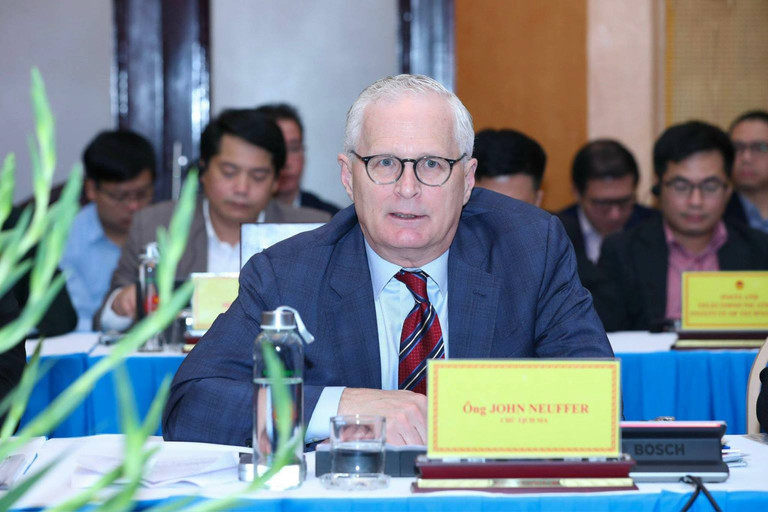
“Vietnam has made hectic preparations to receive and cooperate with the US businesses and investors in the semiconductor supply chain,” Minister of Planning and Investment Nguyen Chi Dung said at a seminar on readiness in infrastructure for semiconductor industry development held on December 7.
Dung said Vietnam has been perfecting the policies and legal framework with the most favorable conditions for businesses and investors. It is also working on upgrading the ‘one stop shop’ mechanism which allows investors to implement investment procedures through the local hi-tech park, industrial zone and economic zone board of management.
The government has instructed the Ministry of Planning and Investment (MPI) to build a plan on developing a workforce for the semiconductor industry, under which Vietnam would have 50,000 workers for the industry by 2030, satisfying semiconductor manufacturing enterprises.
Dung said the plan draft would be submitted to the government for approval soon.
Vietnam has also established the National Innovation Center (NIC), with its branch located at the Hoa Lac Hi-tech Park which is ready to receive investment and R&D projects in the semiconductor industry.
With three hi-tech parks in HCM City, Hoa Lac and Da Nang, Vietnam is ready to welcome semiconductor investors with attractive offers.
The government of Vietnam has approved the eighth national power development plan (Plan 8) and set up a state steering committee in charge of key projects in the energy sector with an aim to ensure a stable and sustainable electricity supply for investment projects.
The National Assembly recently issued a resolution allowing the government to draw up a decree on establishing an investment support fund targeting hi-tech projects, including ones in the semiconductor industry.
“We are working on the draft decree and we hope it will be released by mid-2024,” Dung said.
Great potential
SIA chair John Neuffer said at the seminar that many SIA member companies have had huge investments in Vietnam, such as Intel, Marvell, Synopsys, Qualcomm, Ampere and Infineon.
“Many businesses have increased their investment capital by twofold and the investment deals prove the key and increasingly important role of Vietnam in the global semiconductor supply chain,” Neuffer said.
According to Qualcomm’s representative, the company has been cooperating with Vietnamese partners for 20 years during digital transformation. It plans to continue to expand cooperation in Vietnam in developing the semiconductor industry through training programs.
Meanwhile, Marvell Vietnam said it has made a clear commitment on the development of the labor force in the next 3-7 years through cooperation with universities and research institutes, together with support from the Vietnamese government.
Infineon said it has found a problem in Vietnam, that of high-quality human resources development. Infineon wishes to join forces with Vietnam’s businesses and schools, especially facilities in Hanoi, to prepare the workforce for Vietnam’s semiconductor industry.
Deputy Minister of Education and Training Nguyen Van Phuc said Vietnam has advantages in training in mathematics and chemistry, and the country is now No 1 in Southeast Asia in the field. Therefore, there are favorable conditions for training other majors, including semiconductor and information technology.
“We now have about 40 universities which provide majors related to semiconductors. If the demand in the semiconductor microchip field increases, more students will be interested in the industry and Vietnam can satisfy the training demand, from retraining to new training."
According to Vuong Quoc Tuan, deputy chair of Bac Ninh province, said the province has the largest area of industrial zones in the north (6,400 hectares) and there are still 2,500 more hectares of industrial land.
The provincial authorities now provide financial support for 50 percent of tuition to students at junior colleges and vocational schools majoring in high technologies. A budget of VND400 billion has been reserved to give support in 2023-2025.
The local authorities are planning to issue a people’s council’s resolution on supporting training establishments and students majoring in semiconductors.
Meanwhile, Nguyen Anh Thi, head of the HCM City Hi-tech Park Management Board, said the city promises to create the most favorable conditions for enterprises to invest and do business in the city.
Anticipating the high labor demand in the semiconductor industry, in early 2022 the hi-tech park set up a microchip designing training center with cooperation from Synopsys.
Nguyen Le